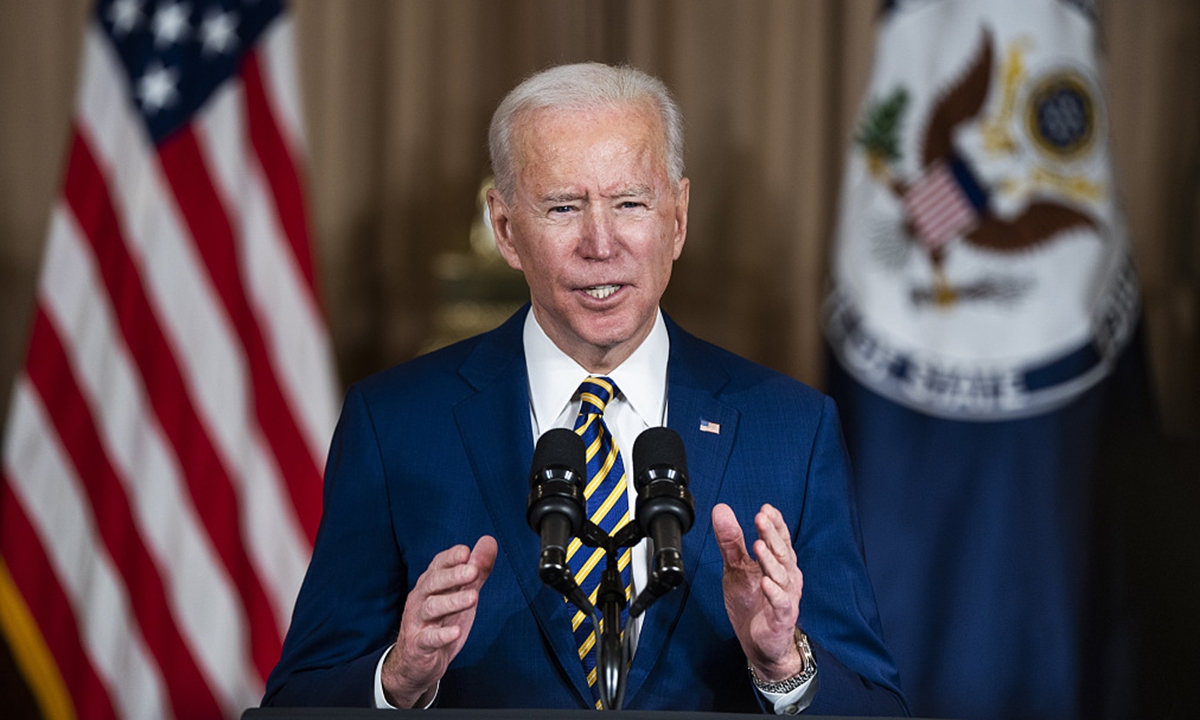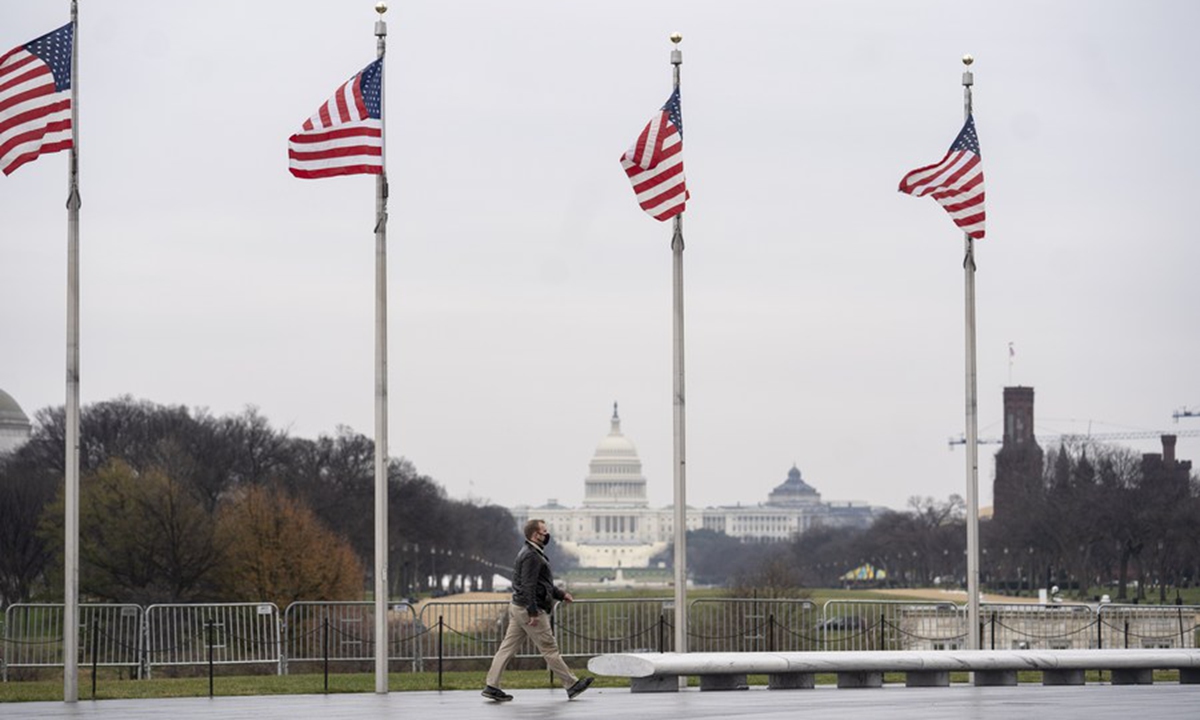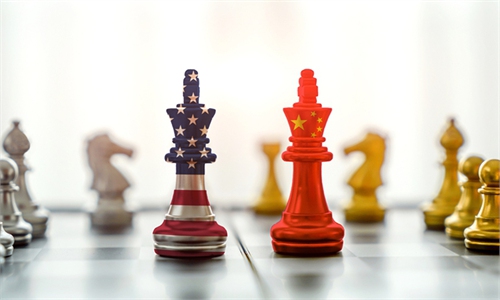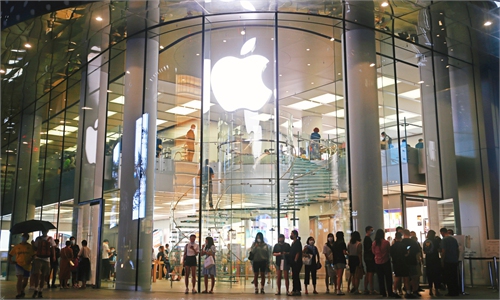Biden mirages US ‘grows faster’ than China for 1st time in 20 years, claims defy data, raise doubts

Biden Photo: CFP
The US economy posted a growth of 5.7 percent in 2021, the strongest in nearly four decades after a severe contraction in 2020, and "the first time it grew faster than China in 20 years," according to US President Joe Biden.
But experts and economists wondered how the US president reached the conclusion with China's 8.1 percent growth in 2021, seeing the vague and confusing statement as just another indication of the world's largest economy losing its hold in dealing with the current crisis with a worse "China threat illusion."
The US economy grew at a 6.9 percent annualized pace in the fourth quarter, the US Commerce Department reported Thursday, which saw a 5.7 percent GDP growth for the whole 2021, the strongest in nearly four decades.
The figure was described by Biden as an indication that "we are finally building an American economy for the 21st century."
He added that for the first time in 20 years, the "US economy grew faster than China's," according to a statement released by the White House on Thursday.
But based on the Global Times' calculation, China's economic growth in 2021 was 8.1 percent, well above the US' 5.7 percent. In terms of the actual increase in GDP, China's economy in 2021 grew by almost $3 trillion compared to 2020, and the US' real growth was $2.1 trillion - also higher than the US.
The White House statement did not show how the US economy surpassed China's in 2021.
Reuters does not appear to agree with Biden's claim, since a Friday report titled "Fiscal stimulus powers US economy in 2021 to its best performance since 1984," which once contained Biden's comment, was found lost later.
An explanation at the end of the story said that the story was corrected to remove the paragraph, since it contained "erroneous information."
In a separate Chinese version of the Reuters report, the paragraph was still there, but pointed out that the remarks were made by Biden, rather than itself.
It still remains unclear how the conclusion was made, but based on math, we cannot reach the same conclusion, Gao Lingyun, an expert at the Chinese Academy of Social Sciences in Beijing, told the Global Times on Friday.
Gao further noted that the US economy posed a better-than-expected performance in the fourth quarter with a 5.5 percent year-on-year growth, but that was due to a relatively low base previously. "The reason for the US to show a seemingly better GDP performance in the fourth quarter than China is that it recovered later than China from the pandemic."
China's economy expanded by 2.3 percent in 2020, roaring back from a historic contraction in the early months of the year, becoming the only major world economy to grow in what was a pandemic-ravaged year. While during the same period, US suffered a GDP contraction of 3.4 percent in 2020, the worst in 74 years.
Observers noted that Biden's "eager and confusing" comparison to China shows that the US has gone deeper into its China containment obsession, and a loss of confidence in maintaining its own pace amid mounting domestic problems from rising inflation, supply issues, as well as market imbalances coming from the upcoming rate hikes.
"This is no accident. My economic strategy is creating good jobs for Americans, rebuilding our manufacturing, and strengthening our supply chains here at home to help make our companies more competitive," Biden said in the statement.

A man wearing a face mask walks on the National Mall in Washington, D.C., the United States. File photo: Xinhua
According to an IMF forecast, the US economy is expected to grow at 4 percent in 2022, 1.2 percentage points lower than previously forecast as the Federal Reserve moves to withdraw its monetary stimulus, even as supply chain disruptions weigh on the economy.
As some foreign media blame China's "zero-COVID" stance for dragging economy growth, observers cautioned that it's the US inflation that will remain as a major threat to both the US and the global economy, and there seems to be no clear solutions so far.
US inflation was at 6.9 percent, the fastest since the second quarter of 1981, way above the Fed's 2 percent target, according to a Reuters report, adding that may have been caused by disposal income of households dropping by 5.8 percent.
In a fresh sign of rising inflation pressure in the US, on January 20, a bipartisan group of more than 140 US lawmakers called on US Trade Representative Katherine Tai to immediately revive and expand a tariff exclusion process on Chinese goods to help US manufacturers.
Consumer spending in the country fell by 0.6 percent in December as prices rose, data revealed on Friday showed, a sign Omicron and inflation were weighting on Americans.
Compared with so-called costs brought by anti-pandemic efforts - a necessary step to bring the global economy back on track as soon as possible - "doing nothing" will bring more long-term risks, Dong Shaopeng, an expert adviser for the China Securities Regulatory Commission, told the Global Times on Friday.
Moreover, China has already proven that it has the ability to balance strict anti-pandemic measures and maintain resilient economic growth, the observer said.


